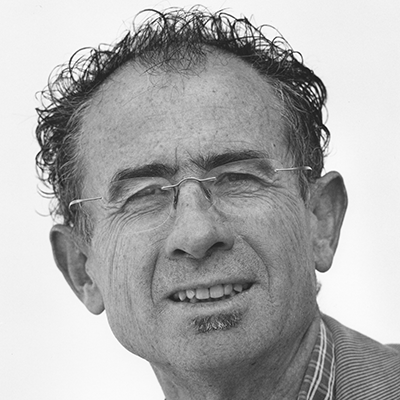Who I Am and Why I Write
Pep Coll
When I was born in Pessonada (a village in the Pallars Jussà region), there was only one book in our house, the family record book. My godfather, Alfonso, was illiterate but, even so, the poor chap was set on teaching me the ABC but the only letter he managed to teach me was capital A, the first one of his name and the only one he recognised. My parents could read and write. My mother was able to read and understand the parish's Sunday leaflet despite the fact that it was in Spanish, and my father could do sums involving a few pesetas when it came to buying a filly at the Salàs fair and selling it a couple of years later as a three-year-old. Since I was the second son and the position of heir was already taken by my older brother, my parents wanted me to study, come what may, in the hope that books would free me from the hard life they had had to endure.
When I was small, I wanted to be a Magi, a bit later, a priest and, eventually, a philosopher. I recall that when I was studying Philosophy at the University of Barcelona, I used to walk proudly around the old cloister of the central campus with a volume of Marcuse under my arm, looking disdainfully at my fellow students of Hispanic Languages or Catalan Philology, the latter being a brand-new department. For me, what mattered were concepts, not words, the great philosophical systems, not literary works of fiction. Words were only packaging, the wrapping of the treasure of ideas that explained the secrets of living. Before finishing my degree I became disenchanted with philosophical systems just as, years earlier, I'd been let down by religion. Perhaps I already intuited what I've been discovering over the years: philosophical ideas are only words (empty packaging) and, accordingly, the so-called great philosophical or theological systems should be counted as works of fiction. I finished my degree in Philosophy with subjects that had nothing to do with the course (but the curriculum at the time made it possible), for example history of music, German and Catalan Language with Professor Soberanas.
Having completed by studies, I returned to Pallars for reasons of employment: working as a teacher in a school in La Pobla de Segur. Coming back to my hometown after some years of absence was a discovery for me. All of a sudden, the words of my childhood, so poor that they were not worthy of being written or of appearing in books, sounded like celestial music, and the old stories I had scorned when I was a child as ignorant people's stuff, took on extraordinary value for me. In order to save these traditional stories from oblivion, I interviewed hundreds of old people from the zone and wrote my first book, Quan Judes era fadrí i sa mare festejava [When Judas Was a Lad and His Mother Was A-courting]. The edition came with a linguistic annex containing words and expressions of the Pallarès dialect). Thus we have the first reason that impelled me to write, and it would have continuity in subsequent collections of legends, Muntanyes maleïdes [Damned Mountains] and El rei de la Val d'Aran [The King of Val d'Aran).
My village was built at the foot of Roc de Pessonada, a sheer reddish rocky outcrop that threatens to crush the houses while yet protecting them from the tramontane. The municipal boundary was originally a stone-strewn slope that the residents have been dividing up into plots over the centuries. The struggle against the stones (clearing them to prepare for sowing and building walls with them to hold in the soil) has been the main occupation of my maternal ancestors. They were fighting with stones and I was fighting with words. I imagine that this business of tidying up the chaos of nature must have been another of the reasons that led me to write.
Vultures from the Boumort Reserve nest on the crag of Roc de Pessonada. Unlike swallows and nightingales and other birds deemed poetic, vultures tend to be looked at askance because they eat carrion. On mature consideration, this bad name they have is totally unjust since if scavengers didn't eat the animal it would end up rotting. The flesh of the dead sheep becomes the flesh and feathers of the vulture. It somehow stays alive flying over the Pyrenees. Novelists and storytellers in general are like vultures: we take advantage of dead stories and bring them back to life in other characters. Lives of humble people whom no one will remember. Hence, the student from the Batllevell house who went mad and lived in Pessonada at the end of the nineteenth century lives on in the novel El salvatge dels Pirineus [The Wild Man of the Pyrenees].
Apart from salvaging the words of childhood, the traditional stories and bits of the lives of anonymous people who have lived hard lives in the Pyrenean valleys, there are other reasons for writing stories. One is curiosity, and a good way to learn about a territory is to write a story about it. Like the vultures from the reserve that fly for hours away from their nests when they can't find carrion in Pallars, I like gliding over the crests and valleys of the Pyrenees. In my last novel (Les senyoretes de Lourdes [The Young Ladies of Lourdes]) I flew all the way to the Bigorra mountains, to the origins of Catholicism's most important sanctuary. Bernadette Soubirous isn't exactly an anonymous person. On the contrary, dozens of hagiographies, or celestial biographies aimed at her devotees have been published about her over one and a half centuries. What remained was to talk about the human side of this visionary, which is perhaps a taller order, but it's the only one that interests me as a narrator.
Copyright © 2008 Pep Coll




